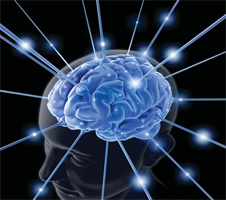LONDON (TIP): Till now, pacemakers helped your heart run like a well-oiled machine or prevented an epileptic fit. But in a first-of-its-kind breakthrough, scientists will announce on Thursday that a pacemaker for the brain can help cure severely anorexic patients. According to a new research published in the Lancet on March 7, scientists have used a neurosurgical implant safely in six patients with severe anorexia. The implant greatly improved their mood, weight and desire to eat. The technique – known as deep brain stimulation (DBS) – involves a device similar to a pacemaker being implanted into the brain. Anorexia is an eating disorder and is among the most common psychiatric disorders in young women aged between 15 and 19 years.
It has one of the highest mortality rates of any psychiatric disorder. Increasingly in India, teenage girls are becoming obsessed about losing weight and therefore severely limit their food intake or starve to feel more in control. Treatment usually focuses on behavioural change, but up to 20% of patients derive no benefit from the available treatment and are at risk of dying prematurely from the disease.
Atleast half of the patients who took part in the study showed improvements in mood and Body Mass Index, leading researchers to hope that larger trials will confirm the effectiveness of the technique in treating anorexic patients. Researchers based at the Krembil Neuroscience Centre and University Health Network in Canada used Magnetic Resonance Imaging (MRI) to identify a specific area of the brain – a bundle of white matter below the corpus callosum, the thick bundle of nerve fibres which divides the left and right sides of the brain – which has previously been used for DBS in patients with depression. Once the target area had been identified, electrodes were implanted into the area and connected to a pulse generator, which was implanted under the skin.
The device was activated 10 days after it had been implanted, with the researchers carefully measuring acute changes in the patients’ mood and anxiety levels to determine the correct level of stimulation. According to Dr Andres Lozano, neurosurgeon and one of the lead researchers, the results are particularly encouraging because they seem to point to a genuine therapeutic effect, rather than a placebo or hungerincreasing effect. He explained, “The initial weight loss argues against a primary effect of DBS on hunger, appetite or metabolic rate.
It also suggests that there is little in the way of a placebo-related benefit to the surgery.” He added, “The finding of improvements in mood and anxiety in patients who were still underweight is especially striking, in view of the well known poor response of underweight patients to conventional pharmacotherapies or psychotherapies.”
